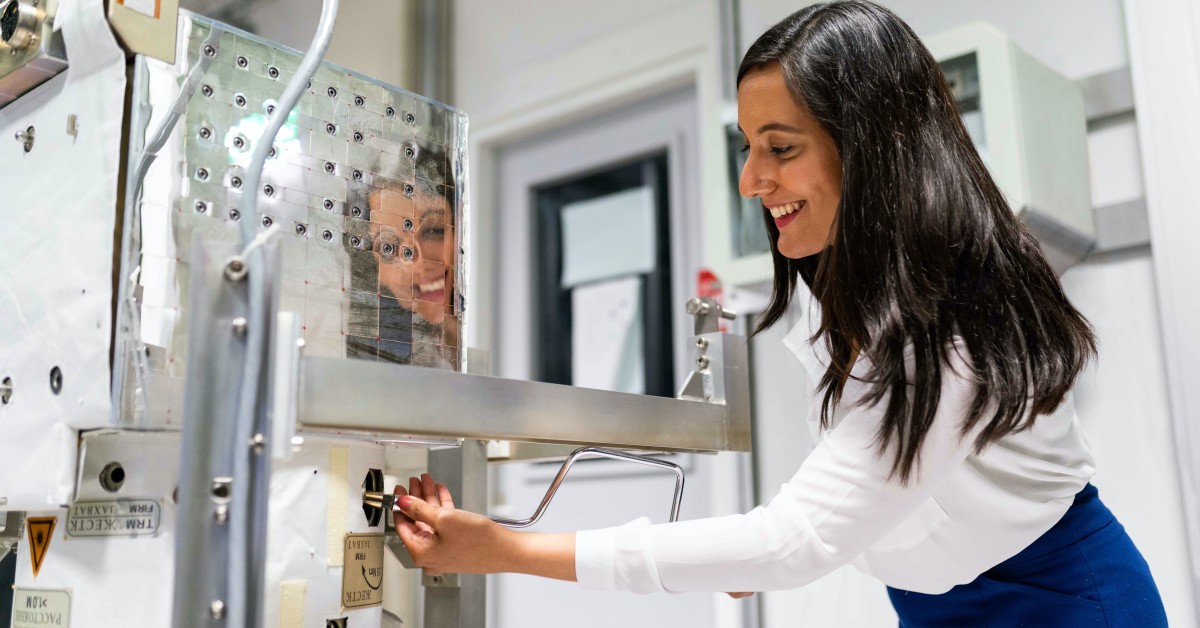
Are Computer Science Majors Happy?
People working in the computer science field with advanced computer [...]

Today’s job market is desperate for computer science professionals. That’s because technology continues to revolutionize industries at a pace far outstripping organizations’ ability to keep up. According to a World Economic Forum study, the top barriers to employers’ adopting new technologies are their inability to attract specialized talent and the skills gaps in both the labor market and organizational leadership.
Seven of US employer’s top ten emerging job titles fall in the computer science field. Within the digital communication and information technology industry, the second-highest emerging skill employers seek is technology design and programming, trailing only analytical thinking and innovation.
Demand for some of the highest-skilled computer science job titles, such as information analyst, is expected to grow by as much as 31 pecent by 2029, well above the already-staggering 11 percent computer science job market growth predicted by the U.S. Bureau of Labor.
That’s good news for anyone specializing in artificial intelligence, cloud computing, computer engineering, cybersecurity, or data science. A masters degree in computer science can be a powerful asset, especially when combined with the right internship experience. To bend the digital skills gap to your favor, gain real-world skills and build a track record of efficacy.
Employers are looking for computer scientists with rigorous training and applicable real-world experience. That’s why it’s so important to choose your internship wisely. It could cue up your first post-master’s job and the rest of your career.
In this article about how to secure the best computer science internship, we will cover:
For those pursuing a master’s degree in computer science, the employment future in this increasingly tech-driven economy looks promising. The U.S. Bureau of Labor expects the demand for computer science professionals to grow four times faster than the general job market, outpacing the workforce’s ability to produce qualified candidates.
Specialized and highly skilled roles such as those in data science, cybersecurity, and software development are among the hardest for employers to fill. Companies use internships to test-drive a prospective employee’s performance before hiring them full-time, which they often do.
Computer science internships help students accrue specialized work experience and build skills that are hard to develop in the classroom. At the end of their internship program, successful students have a product they’ve built or a project they’ve positively impacted. They’ve also burnished soft skills such as adaptability, innovative thinking, teamwork, and communication. If you’ve cleared the hard skill hurdles in a hiring process, a road-tested ability to collaborate effectively will set you apart from the competition.
Internships, sometimes called co-ops, typically occur over the summer and require full-time commitment. Part-time students can sometimes petition for their current job or a specific work assignment to count as their internship.
Graduate students generally must complete a certain number of classroom credits before beginning an internship. Students who complete those quickly—or have transferable credits that satisfy the requirements—may undertake more than one summer internship during their degree.
The short answer is, most likely, yes, but you’ll still have to drive the process.
Most full-time programs facilitate career fairs for employers to meet prospective summer interns. Networking with faculty members and alumni can also surface internship opportunities. Schools often populate a job board (likely using Handshake) with internship opportunities. Proactive career development offices, such as the one at Stevens Institute for Technology, take a hands-on role in helping graduate students identify prospects.
Part-time programs may have fewer in-person networking events. Make the most of any immersive residencies and events offered, and double-up on your own search efforts on job sites such as Indeed, LinkedIn, and Glassdoor.
Universities offering online MSCS programs alongside equivalent in-person degrees—as does Tufts University—often provide the best of both worlds: the flexibility of an online degree with an impressive track record of internship and job placements for their online and in-person students alike.
| University and Program Name | Learn More |
|
The University of Tennessee:
Online Master of Computer Science
|
|
|
Merrimack College:
Master of Science in Computer Science
|
|
|
Stevens Institute of Technology:
Master of Science in Computer Science
|
Due to technology’s exponential impact on industries across the board, legacy tech companies like Microsoft and IBM aren’t just competing with tech brand names like Facebook, Apple, and Google for the best prospective software engineer. They’re also competing with everyone from aerospace companies like Boeing and SpaceX to consumer-facing companies, the government, and political campaigns. Before targeting an industry or company, narrow down the computer science field and role best suited to your skills and interests.
Students begin applying for internships as early as August for the following summer. The most desirable internships get snapped up by January, so don’t wait to get started.
Begin by scanning your network of contacts. Brainstorm a list of people who work at companies of interest and ask them for informational interviews. Start a spreadsheet to track your progress with each prospective employer.
Once you’ve identified a list of potential internships, submit your resume manually on company websites, personally through a connection, or via application platforms such as LinkedIn. Make sure your resume is free of fancy formatting; application platforms often will not accurately scan resumes with graphics and irregular fonts.
If your resume piques a company’s interest, they will invite you to interview. You may have as many as three interviews before receiving an offer.
Remember to seek formal permission from your graduate program for the internship to count as course credits toward your degree. You’ll also need to identify a professor to serve as your faculty sponsor. Submit your application to the university, including an official offer letter, by the beginning of the semester.
Yes, and handsomely so. Of the top 25 highest-paid internships, 15 are are at technology companies, with Facebook topping the list at $8,000 per month, the equivalent of a $96,000 annual salary. The average software engineering intern earns $22.48/hour, or $44,960 annually.
That’s good news, not just for your bank account during your internship, but for your future employment prospects; a survey by the National Association of Colleges and Employers showed that paid internships result in more job offers and higher salaries.
Questions or feedback? Email editor@noodle.com

People working in the computer science field with advanced computer [...]

Networking is a field with a confusing array of titles; [...]

The difference between cyber security and information security,not to mention [...]
Categorized as: Computer Science, Information Technology & Engineering